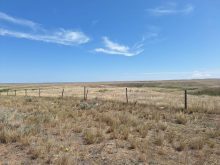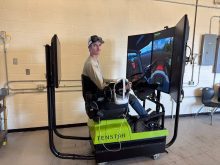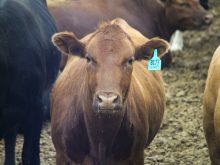Lethbridge Research Centre scientist Hector Carcamo is looking for farmers to participate in his one-shot control for cabbage seed pod weevil and lygus in canola.
His four-year project to try to control cabbage seed pod weevils and lygus bugs with a one-shot application of insecticide so far has produced good news, he told the annual Agronomy Update Conference in Lethbridge.
“It seems from preliminary data what you are doing is the right thing,” he said. The near-time future work is set and he will collect data for three more years.
Read Also

Farming Smarter receives financial boost from Alberta government for potato research
Farming Smarter near Lethbridge got a boost to its research equipment, thanks to the Alberta government’s increase in funding for research associations.
Carcamo would like 20 sites where he can collect spray and harvest data with combines using yield monitors linked to global position systems. He said participants with GPS linked to combine monitors who can save and share raw yield data are preferred. They will also be asked to spray the border of their fields even if there is a low incidence of weevils.
Carcamo said there are four species of lygus bugs in Alberta. They prefer warm, dry conditions. The bugs usually arrive at fields when the crop is in flowering stage. He said it is a bigger worry if lygus bugs arrive at the pod stage.
Lygus are large enough to cause damage on canola. Their mouth parts can penetrate the seed pod to cause damage. That is why he is trying to determine the impact of spraying insecticides at early flowing stage or the impact of a large number of lygus at the early pod stage on commercial farms.
“We want to develop recommendations for managing a combination of seed pod weevils and lygus bugs as a pest complex,” Carcamo said. “It will be in relation to seeding dates and the effect of rain and temperature.” He said he wants to determine what happens to yield with weevils in the flower stage and lygus at the pod stage. “In most cases, there has been a positive response to insecticide,” he said. “Three years is still variability for yield. That is why we want to do the study over four years.”














